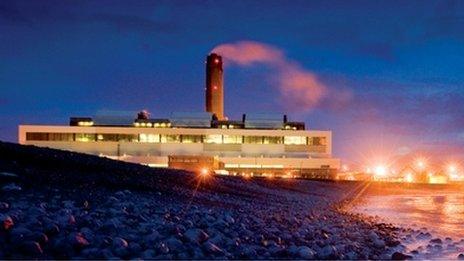Aberthaw pollution position 'untenable', says court legal adviser
- Published
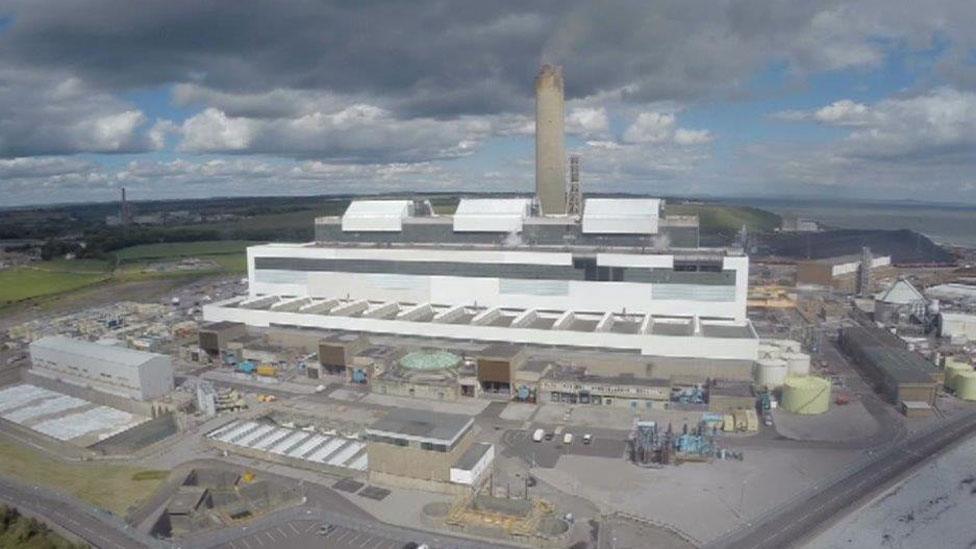
The coal-fired Aberthaw on the Vale of Glamorgan coast is due to close by 2025
A senior legal adviser at the European Court of Justice has said the UK's position on pollution levels at a south Wales power station is "untenable".
The court is considering its verdict in an infringement hearing about emissions from coal-fired Aberthaw.
It is alleged the site has been pumping out more than double the legal amount of toxic nitrogen oxides for seven years.
The UK Government argues the power station is not in breach of the rules.
It further claims that the Vale of Glamorgan plant has made major investments to try to improve its performance.
'Disaster'
In a document summarising his opinion of the case, advocate general of the European Court of Justice, Michal Bobek, says he finds the arguments put by the UK to be "untenable".
He proposes that the court find the UK to be in breach of its obligations under EU rules to limit pollution levels.
Director of Friends of the Earth Cymru, Gareth Clubb, said: "Since at least 2001, Aberthaw power station has had no legal justification for emitting horrific amounts of toxic pollution into the atmosphere.
"The judgement spells disaster for Aberthaw. It's very difficult to see how it can avoid permanent closure once the Court of Justice reaches its final verdict."
In April, BBC Wales revealed that Aberthaw's operator, RWE, is set to downgrade the plant so that it only generates electricity at times of peak demand.
The UK government has said it wants all coal-fired power stations to close by 2025.
Emissions
RWE said it was "disappointed" with the advocate general's opinion but would await the final EU court judgement.
The UK government had claimed that an exemption in the law around air pollution for plants burning low volatile coal was aimed at sites such as Aberthaw, given that the anthracite coal it uses is sourced locally, harder to burn and important to the local economy.
"Aberthaw Power Station was specifically designed to burn Welsh, regional, low volatile coal and historically, 60% of its fuel diet is Welsh," a RWE spokesperson said, adding that "the station has always been compliant with its operational permit."
"Following a successful installation of new technology to one unit at the plant the nitrogen oxide emissions have been substantially reduced. RWE has committed to further reduce emissions and increase fuel diversity, despite very difficult market conditions."
- Published25 April 2016
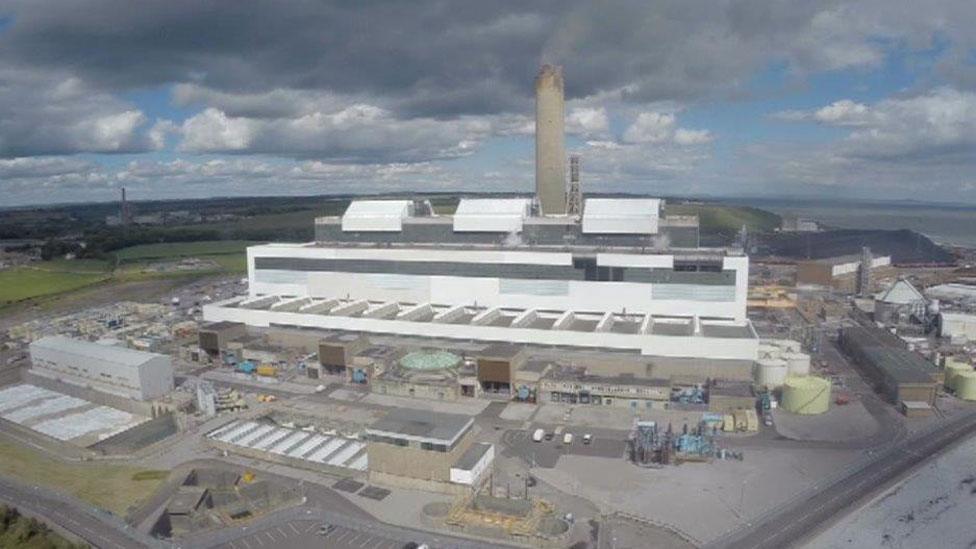
- Published8 March 2016

- Published26 March 2015
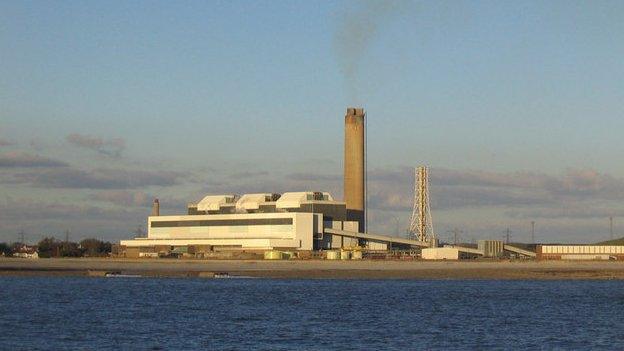
- Published5 July 2014
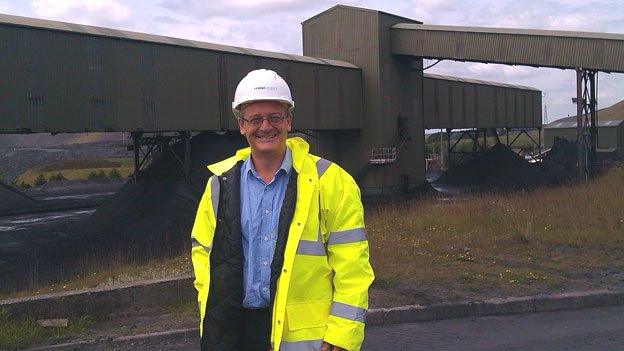
- Published7 February 2012
